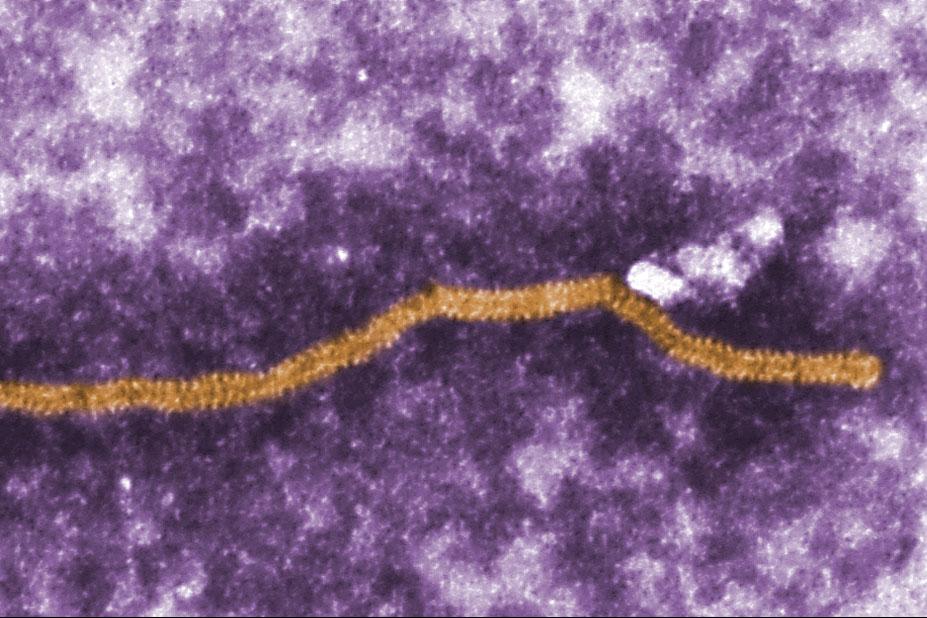An international consortium of scientists and commercial partners is aiming to develop a vaccine and companion diagnostic test for Nipah virus (NiV).
The newly emerging zoonotic disease infects pigs and can spread to people. Carried by fruit bats, it can cause human encephalitis (brain swelling), leading to severe illness or even death.
A 1998 Malaysian outbreak, which killed more than 100 people, was controlled by culling almost half the nation’s pig population, devastating the farming industry.
Researchers at The Pirbright Institute are leading a two-year, £1.5m project with the Friedrich-Loeffler-Institute (FLI) in Germany, and three leading UK companies – EnsiliTech, Global Access Diagnostics and BioVacc Consulting – to create the first-ever bivalent NiV vaccine that could be routinely used to protect pigs against NiV and reduce the risk of severe outbreaks.
This research is funded by the Department of Health and Social Care (DHSC) as part of the UK Vaccine Network, a UK Aid programme to develop vaccines for diseases with epidemic potential in low- and middle-income countries.
The partnership builds on a previous study which developed a two-shot immunisation regime to provide a high level of protection against NiV.
Professor Simon Graham, who leads the Porcine Reproductive and Respiratory Syndrome (PRRS) research group at Pirbright, said: “Despite the threat NiV poses, no vaccines are available. Commercial development has been limited as companies fear limited marketability due to the sporadic nature of outbreaks. To address this gap, the consortium aims to develop a vaccine for pigs which could be deployed in response to an outbreak situation, or routinely used to reduce the risk of NiV outbreaks occurring.”
Dr Walter Fuchs, from the Friedrich-Loeffler-Institute, said: “The project builds on our expertise in genetic engineering of pseudorabies virus which should allow us to develop a vaccine that can provide immunity after a single immunisation or can be used as a bivalent vaccine.”
The consortium’s UK partners bring a range of commercial skills and expertise to vaccine development. EnsiliTech specialises in biologicals without refrigeration, allowing a silica-coated vaccine to be stored and transported in tropical regions without cold storage; Global Access Diagnostics develop innovative rapid lateral flow immunoassay tests – and will develop a companion diagnostic test that will discriminate infected from vaccinated pigs, and BioVacc Consulting provides expert insight into vaccine research and development.
Dr Asel Sartbaeva, CEO of EnsiliTech said: “The majority of today’s vaccines require constant refrigeration to ensure efficacy. If there is no fridge or electricity, some vaccines could spoil before they reach the animal. EnsiliTech’s novel technology, ensilication, could make vaccines thermally stable, thus removing the need for cold-chain all together. Through this groundbreaking technique, we will empower veterinarians and farmers safeguarding animal health.”
Live attenuated pseudorabies virus (PrV) vaccines are highly effective and have been used for successful eradication of Aujeszky’s disease from domestic pigs in many countries. These vaccines can be engineered to express antigens from other pathogens. Pirbright and FLI scientists have shown that inclusion of NiV proteins in a PrV vaccine does not hinder PrV-specific immune responses.
The new project will improve the combined PrV-NiV vaccine to provide protection after a single shot by engineering NiV glycoproteins to be expressed on the surface of cells, enhancing antibody responses.
